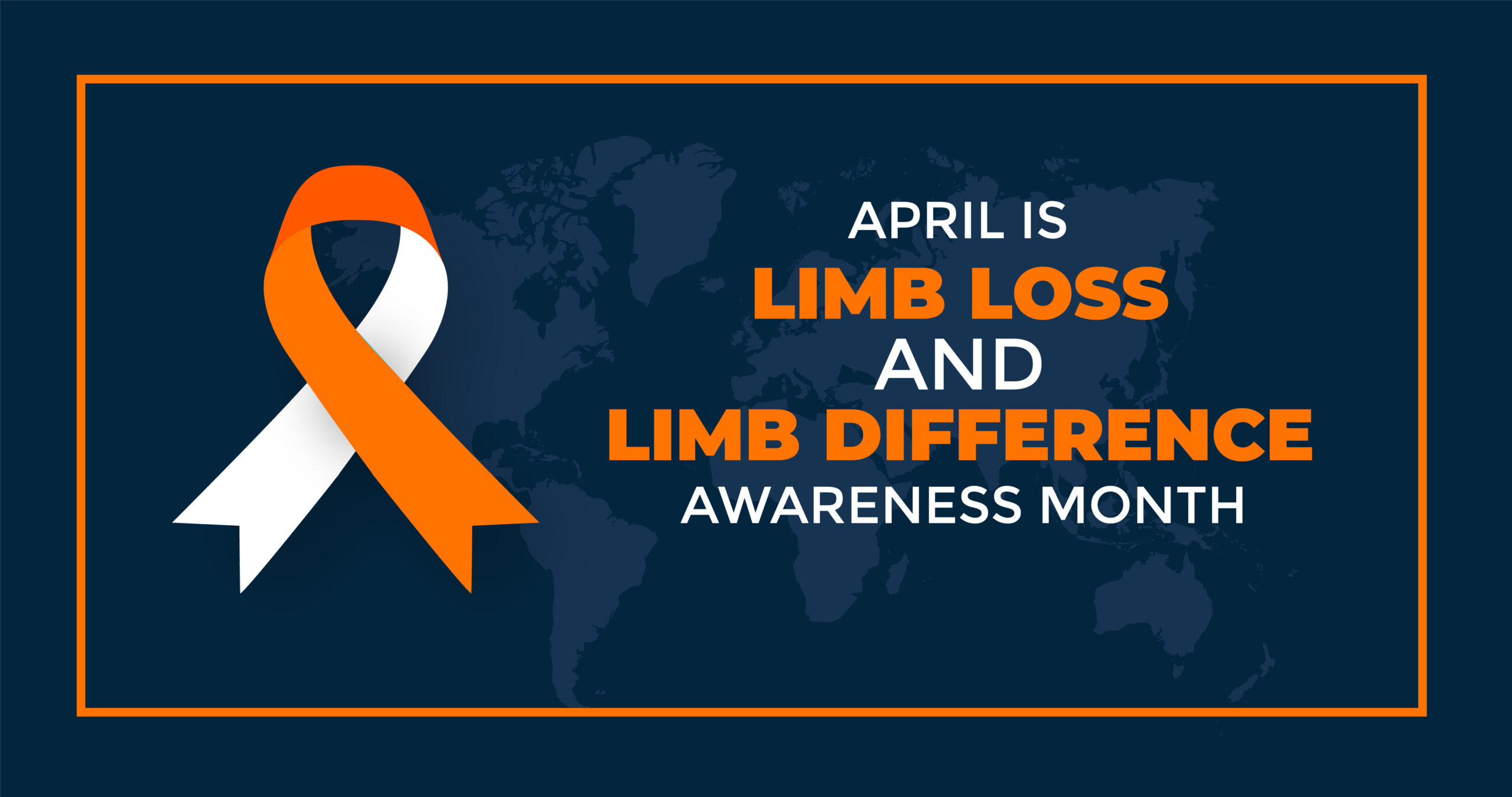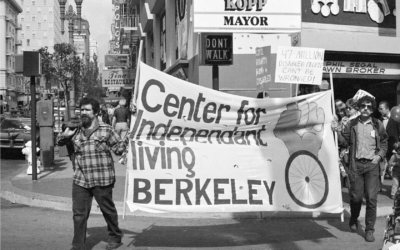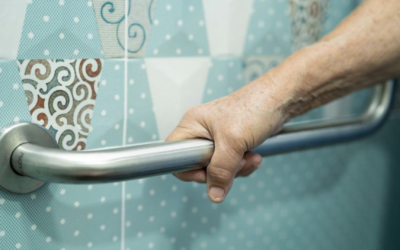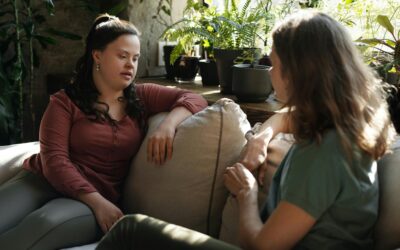(Image description: Limb Loss and Limb Difference Awareness Month logo.)
Every April, the Limb Loss and Limb Difference Awareness Month (LLALDAM) draws attention to the stories of individuals who have experienced limb loss or are living with limb differences, their personal stories of challenge and triumph. This month serves as a platform to raise awareness, promote inclusion, and advocate for improved accessibility and support for those affected by limb loss or limb differences. Through raising awareness about individuals and their stories, advocacy efforts, and the general experience of living with limb loss or limb difference, CPWD and the Amputee Coalition hope to bring more equity to a community that often experiences inequities in our society.
In a study released by the Amputee Coalition in February, they reported that approximately 5.6 million Americans live with limb loss or limb difference. Limb loss and limb differences can arise from a variety of causes, including congenital conditions, traumatic injuries, vascular diseases, and cancer. Diabetes is currently the number one cause of limb amputations in the United States. Regardless of the cause, individuals living with limb loss or limb differences often encounter significant physical, emotional, and financial obstacles. From accessing appropriate medical care and prosthetic devices to overcoming societal barriers and stigmas, the journey for many can be challenging.
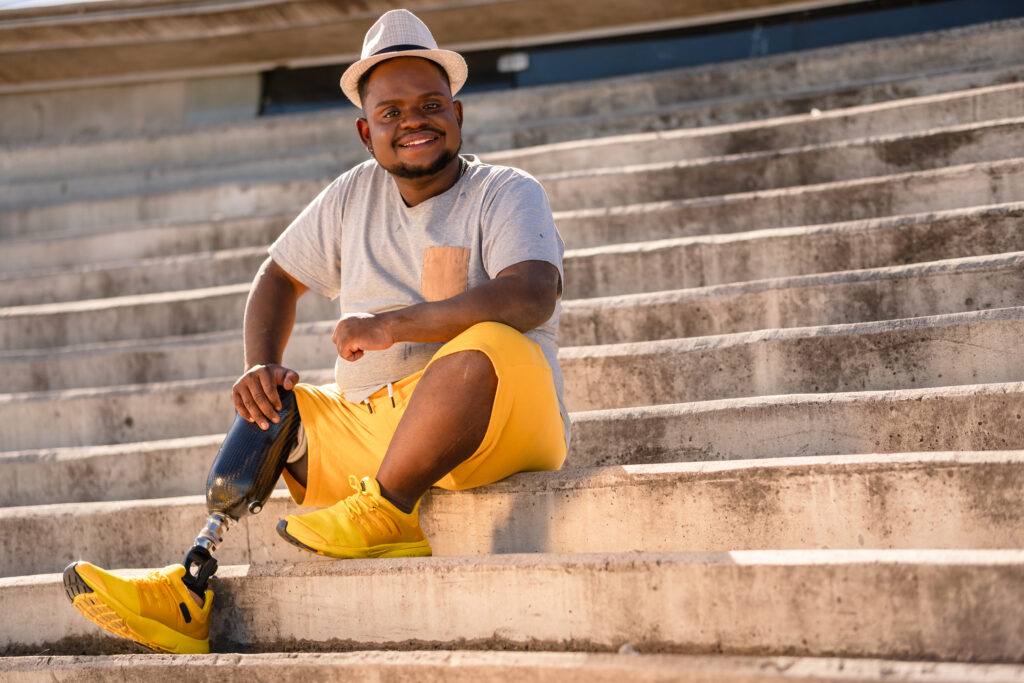
Image description: A black man wearing a white hat, shirt, and yellow shorts with prosthetic leg sits on some outdoor step, smiling at the camera.
But Limb Loss and Limb Difference Awareness Month is also intended to celebrate the differences, the unique journey of each person through sharing of personal stories, and the community as a whole that shows the world disability does not equate to limitation.
“The awareness month is to celebrate that we’re here, and we’re going to be counted,” said Whitney Doyle, the Advocacy Director for the Amputee Coalition. “We take the opportunity to celebrate our uniqueness in the disability community, having these medical devices and being able to say that we are taking our legs off after a long day of work or play, and our unique experiences that allow us to come in and be who we are. We want the whole world to live whatever life they want to live, disability or no disability.”
So Everybody Can Move
Advocacy is a large part of LLALDAM. It is an opportunity to bring awareness to others about the challenges this community faces, and steps being made or that can be made in the future to enact change for a more equitable society.
One significant barrier currently for individuals with limb loss or limb differences is the cost of prosthetic devices. On average, a basic prosthetic limb can cost tens of thousands of dollars, with more advanced models reaching into the six-figure range. In most cases, insurance generally only covers the cost of one prosthetic device for everyday use. Everyday prosthetics, also known as functional prosthetics, are designed to assist individuals with limb loss or limb differences in performing essential activities of daily living such as walking, grasping objects, and engaging in routine tasks. These prosthetic devices are not suited for recreational activities, such as running, dancing, cycling, swimming, and more. These functions are specific to recreational prosthetics.
Movement and exercise is foundational to only only good physical health, but mental health as well. It is a right to be able to take care of one’s body. Unfortunately, for people who need recreational prosthetics to exercise this right, it is a fight against insurance companies. Recreational prosthetics have typically been labeled not medically necessary and therefore the cost is not covered by these companies. On average, a recreational prosthetic limb for activities such as running, swimming, or cycling can range from several thousand to tens of thousands of dollars. For example, high-performance running blades can cost anywhere from $5,000 to $25,000 or more, while specialized swimming or cycling prosthetics may also fall within a similar price range. Some even bring in a hefty $70,000 price tag, making exercise and athletics stay out of reach for most people.
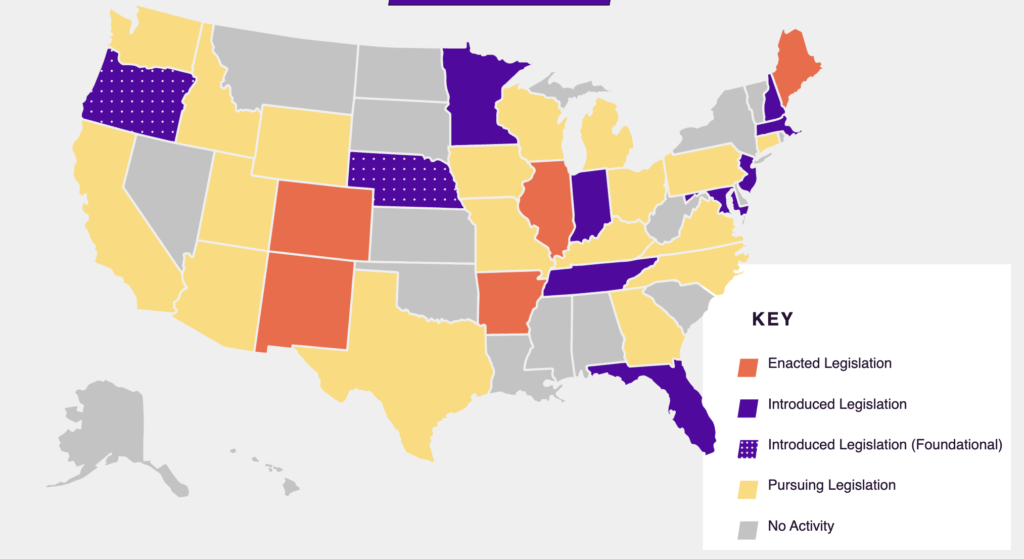
Image Description: A map of the United States shows 5 states highlighted in orange that have passed legislation, and 11 states in purple that have introduced legislation
Through the advocacy work of CPWD, the Amputee Coalition, and other partner organizations, Colorado passed a groundbreaking bill, the HB 23-1136 Prosthetics Devices for Recreational Activity, in 2023 to expand insurance coverage for prosthetic devices used for recreational purposes. This legislation mandates insurance companies to cover the cost of specialized prosthetic devices tailored for recreational activities. This was a significant victory for individuals with limb loss or limb differences in the state. Colorado is one of five states that have passed this type of legislation. Currently there are 11 other states that have introduced similar legislation this year.
The impact of legislation like Colorado’s extends beyond its borders, serving as a model for other states and jurisdictions. By removing financial barriers, such laws empower individuals to engage in recreational activities and reclaim their sense of independence and identity. To get involved, visit https://soeverybodycanmove.org and learn how you can become an advocate for passing this important legislation.
As we observe Limb Loss and Limb Difference Awareness Month, let us not only raise awareness of the unique personal stories, challenges, and triumphs experienced by this community but also take concrete steps to enact change. By advocating for legislative reforms, supporting research and innovation, and fostering a culture of inclusivity, we can create a world where individuals with limb loss or limb differences can live their lives to the fullest.
If you have any questions about limb loss, or need assistance with resources or information, please contact CPWD: [email protected]. We have staff with limb loss, and can assist you in getting your independent living needs met.


